-
Trump is just over a month away from formally becoming the GOP’s presidential nominee.
-
The former president is facing competing pressures to find his new running mate.
-
Trump has a lot of choices, from old rivals or MAGA allies.
Former President Donald Trump’s search for a running mate is nearing the final stretch.
According to multiple reports, Trump’s campaign asked North Dakota Gov. Doug Burgum, Sen. Marco Rubio of Florida, and Sen. JD Vance of Ohio to submit paperwork on their backgrounds. Presidential campaigns often ask vice presidential finalists to cooperate with an extensive vetting process.
According to NBC News, which first reported the vetting news, Trump’s choice is down to four names at most: the above trio and Sen. Tim Scott of South Carolina.
Trump previously stoked speculation about his pick by publicly confirming half a dozen names on his list: Florida Gov. Ron DeSantis, Scott, biotech entrepreneur Vivek Ramaswamy, South Dakota Gov. Kristi Noem, Florida Rep. Byron Donalds, and former Congresswoman Tulsi Gabbard.
Trump’s team also sent Scott, Donalds, Stefanik, and former HUD Secretary Ben Carson requests for information, but ABC News reported that it’s not clear if those asks were as extensive as the ones Burgum, Rubio, and Vance received.
What is clear is that Trump will need to make a decision soon. The Republican National Convention kicks off in Milwaukee on July 15.
History shows that the ultimate selection could be surprising, so it’s worth considering an even wider pool of potential names.
Here’s a look at the names to watch as Trump continues his quest to retake the White House:
Sen. Marco Rubio of Florida
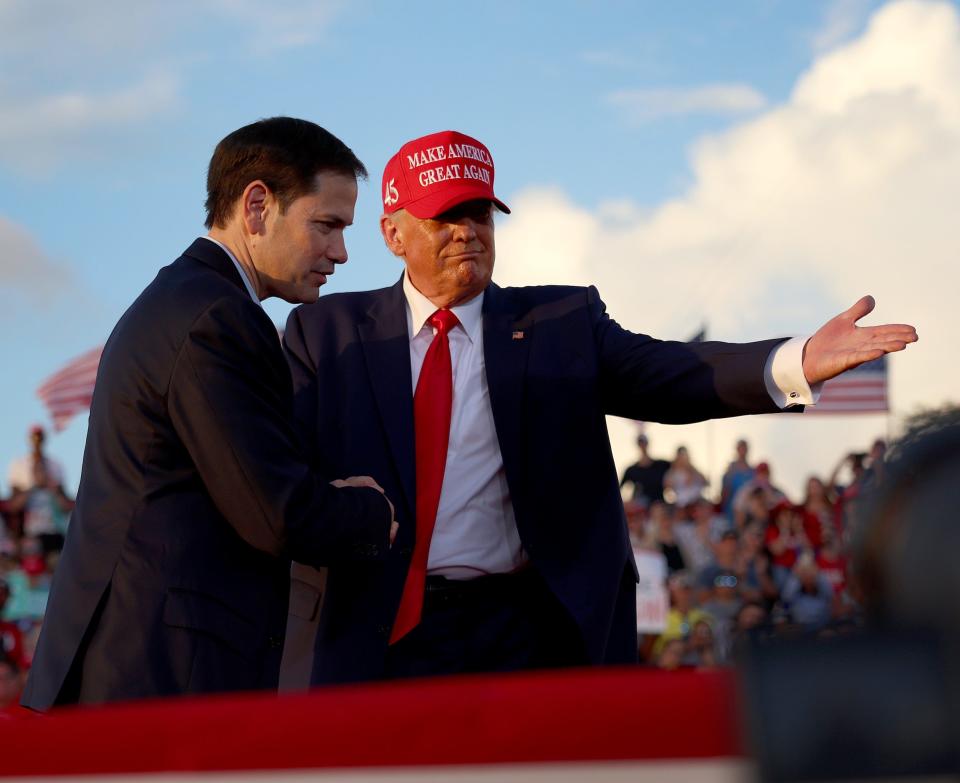
Rubio once viewed as the GOP’s future, is reportedly gaining attention as a possible pick.
Rubio, like DeSantis, endured significant taunting and attacks when he opposed Trump during the 2016 primaries. But the pair have moved beyond the “Liddle Marco” jabs.
The Florida senator was a key ally during Trump’s presidency, though Rubio did not support overturning the 2020 election results. After the January 6, 2021 Capitol riot, Rubio delivered an impassioned speech on the Senate floor, arguing that it was “a terrible idea” to continue to raise objections to the results.
Like many on this list, Rubio has given combative answers on whether he would accept the 2024 results.
“‘No matter what happens?’ No, if it’s an unfair election, I think it’s going to be contested by each side,” Rubio told “Meet the Press” host Kristen Welker in late May.
Now a third-term senator, Rubio would also have more experience in federal office than Vice President Kamala Harris did when Biden tapped her to be his running mate.
Gov. Doug Burgum of North Dakota
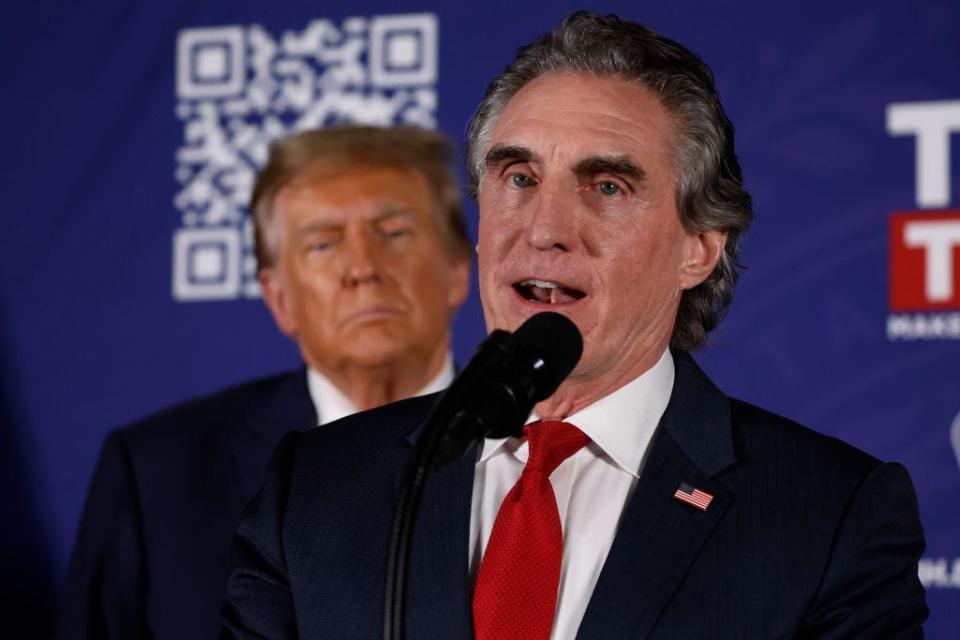

North Dakota Gov. Doug Burgum was virtually unknown nationally before his brief GOP primary run. It’s not even clear if his campaign changed that status. Arguably, one of the biggest news days of his campaign was whether he would attend a primary debate after he injured his leg.
But since ending his campaign, Burgum has maintained a ubiquitous presence as a top-level surrogate all over TV. He’s now a serious contender to be Trump’s running mate.
If he doesn’t get picked, Trump has already suggested including Burgum in his potential cabinet.
Burgum also shares the former president’s background of parlaying business success into a political career. He sold his software company to Microsoft for $1.1 billion.
Sen. JD Vance of Ohio
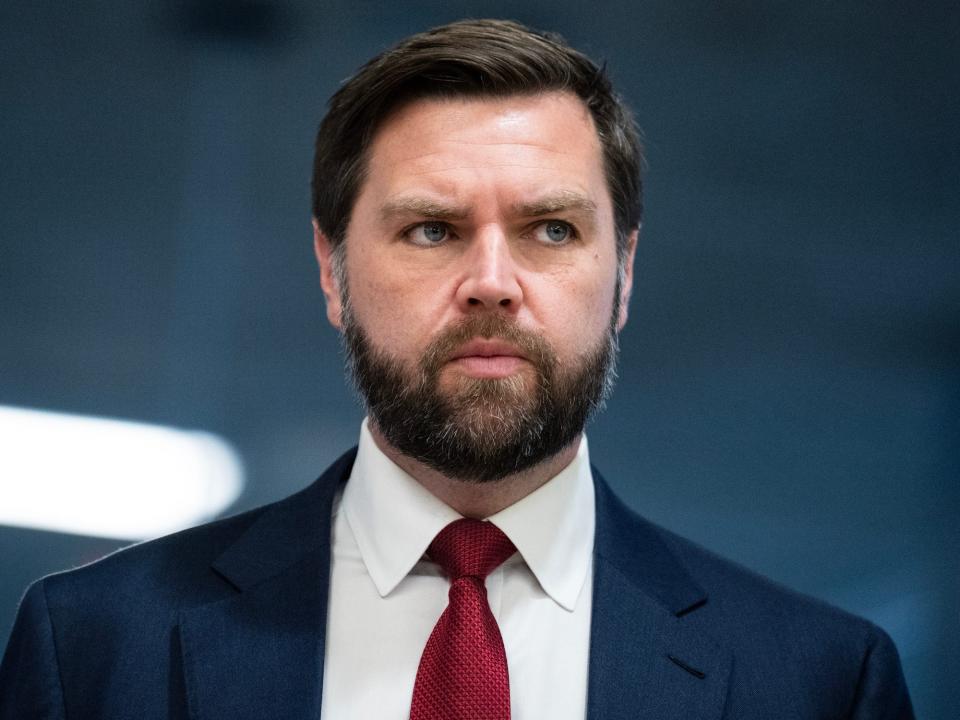

Despite having just been elected to the US Senate last year, Vance has repeatedly been floated as a vice-presidential candidate for Trump.
And he’s not saying no.
“Certainly if the president asked, I would have to think about it,” Vance recently said while stumping for Trump in New Hampshire — though he also said that the “best place for me” is to remain in the US Senate.
A former venture capitalist and the author of the bestselling book “Hillbilly Elegy,” Vance was once a “NeverTrumper” and a fierce critic of the former president. But he has since morphed into one of his staunchest acolytes in the Senate, and he’s at the vanguard of a movement that seeks to reorient the party more towards the working class.
Vance and some other top VP contenders made it a point to attend Trump’s Manhattan criminal trial. Trump later became the first former president to be convicted of a felony.
Rep. Byron Donalds of Florida
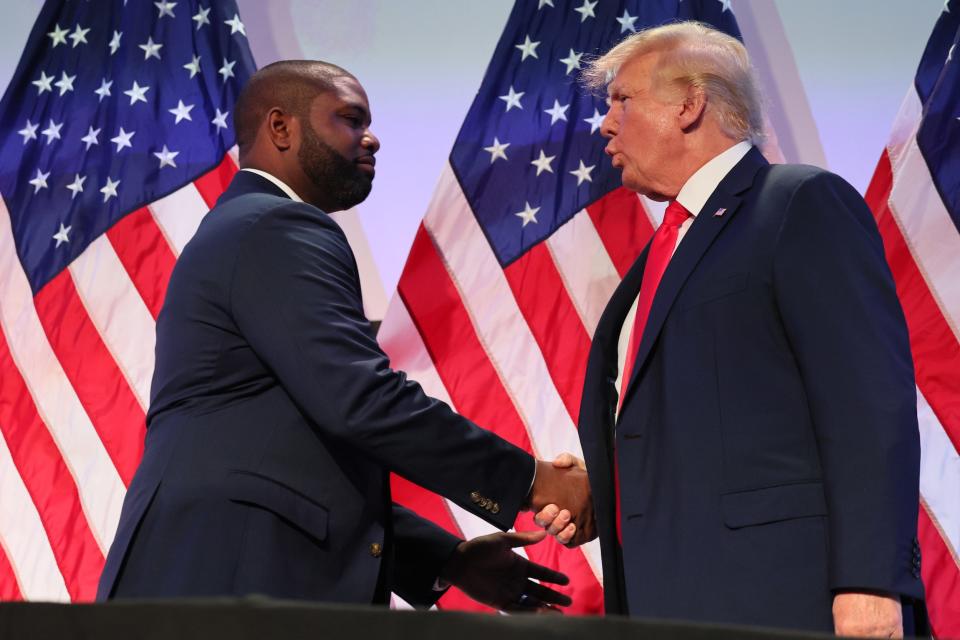

Donalds, currently in just his second term, has risen rapidly in Congress. Conservatives opposed to Kevin McCarthy’s leadership put the Florida Republican forth as an alternative to the then-longtime House GOP leader. Donalds was later added to the powerful House Steering Committee after he switched his support to McCarthy and McCarthy went on to become speaker.
That wasn’t his only major flip. Donalds, who had previously been DeSantis’ close ally, endorsed Trump last April, part of a string of Florida Republicans that snubbed their governor to back the former president. Donalds has also been floated as a potential successor to DeSantis, who cannot run for reelection in 2026 due to consecutive term limits.
Donalds was also among the six potential names Ingraham suggested to the former president. Trump responded by saying, “They’re all good, they’re all solid.”
Like Florida Gov. Ron DeSantis, Donalds would also have to deal with potential concerns of sharing the same home state as Trump.
Rep. Elise Stefanik of New York
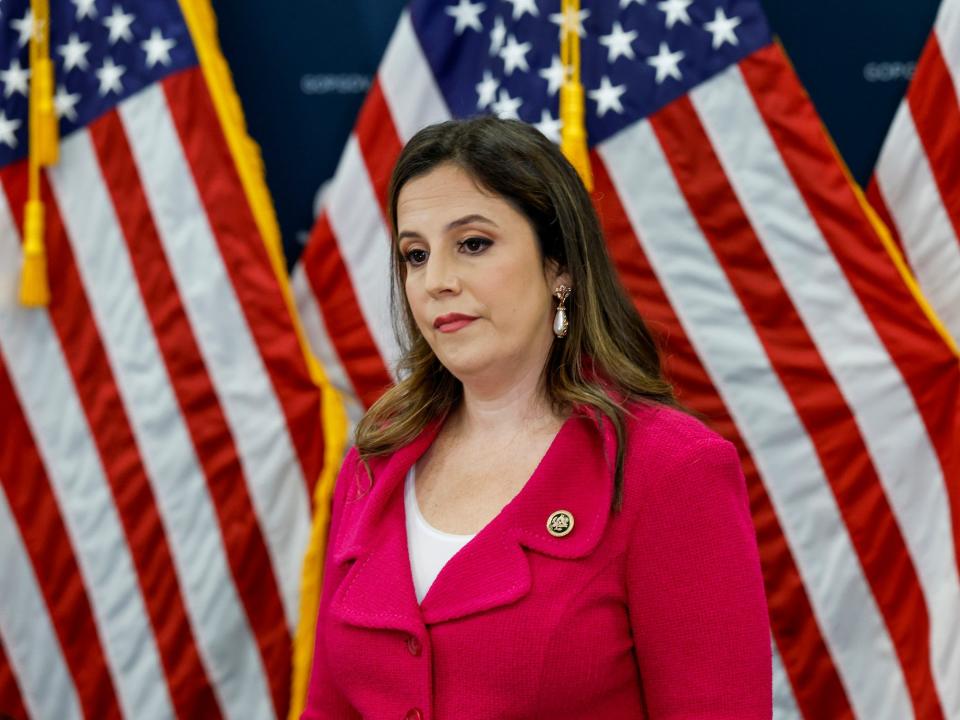

The chairwoman of the House GOP Conference, Stefanik is the highest-ranking official who is seen as a potential Trump pick.
The New York congresswoman, who ascended to her leadership position on the heels of Liz Cheney’s ouster, has notably undergone a sharp shift when it comes to Trump, beginning with the 2019 impeachment hearings.
Trump has reportedly described Stefanik as a “killer” and a potential pick in private, and the congresswoman recently said she “would be honored to serve in any capacity in a Trump administration.”
Stefanik has raised her national profile by grilling college presidents over their handling of students who have protested the Israel-Hamas war. The New Yorker has drilled into administrators whom she has accused of being too weak in their response to antisemitism.
Sen. Tim Scott of South Carolina
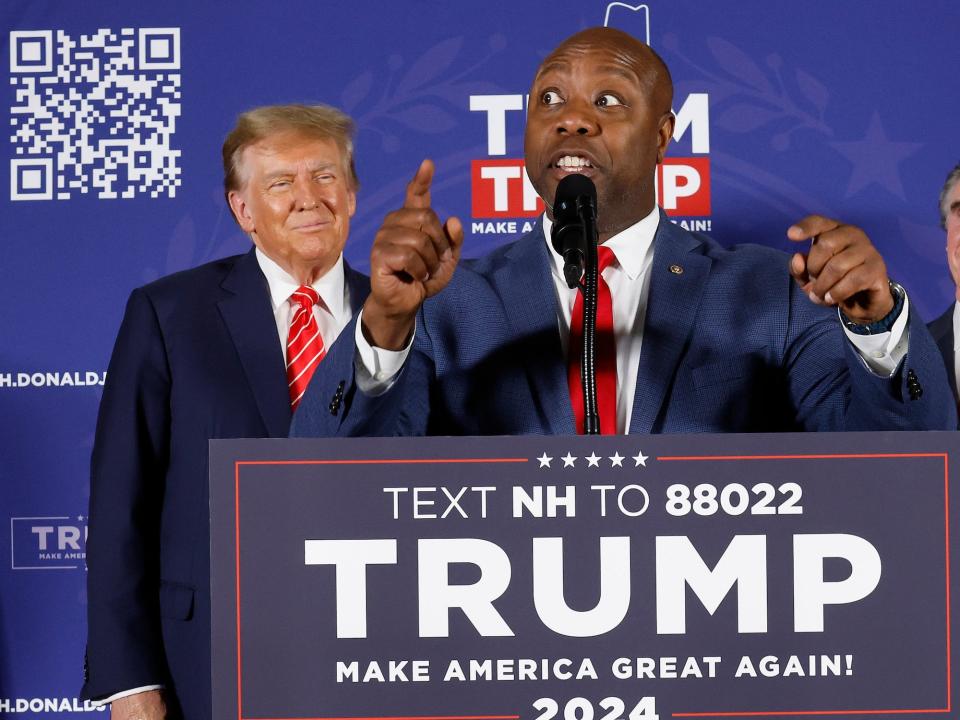

The 58-year-old three-term senator endorsed Trump shortly before the New Hampshire primary. The South Carolinian also largely avoided criticizing Trump in a way that may have foreclosed him being on the ticket.
According to Politico, Scott talks with Trump or texts with the former president nearly every week.
Scott previously stoked speculation that he could be picked by telling the Wall Street Journal that he found his and Trump’s contrasting styles “to be very complementary.”
It’s worth noting that while the former president has a growing list of congressional allies, the Senate has repeatedly been an issue for him.
Former HUD Secretary Ben Carson
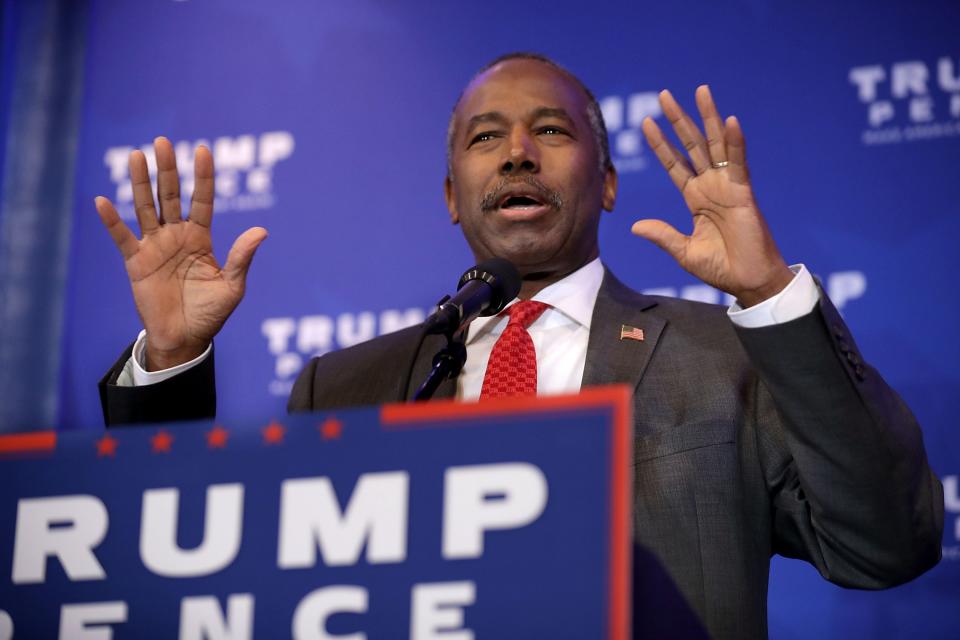

Former Housing and Urban Development Secretary Ben Carson has remained in Trump’s good graces. It likely helps that he’s one of the few Trump Cabinet veterans to endorse the former president wholeheartedly.
Former White House chief of staff Mick Mulvaney told Sky News Australia in early June that Carson will likely get tapped.
“The one element I think Ben Carson has that none of the other six people on the list have is I don’t think Ben Carson wants to be president; I don’t think he wants to run for president,” Mulvaney said.
Carson is much more conservative than Trump on a key issue: abortion. Carson has previously said he supports a nationwide abortion ban, a position that Trump has strenuously tried to avoid.
Businessman Vivek Ramaswamy
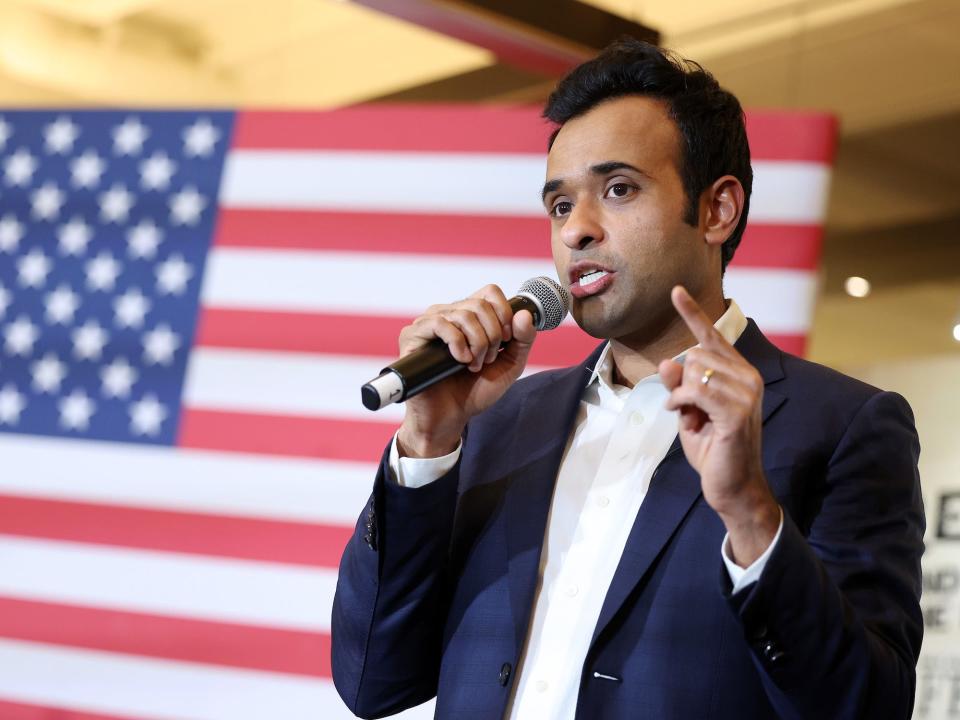

Like some other candidates on this list, Ramaswamy is unlikely to be chosen as Trump’s next VP. But that doesn’t mean there aren’t people out there who would like to see it.
Ramaswamy was perhaps the only candidate in the race who never dared to issue substantive criticisms of Trump, choosing instead to run as a staunch supporter of the former president who would carry that mantle forward.
He dropped out immediately after coming in 4th in Iowa, endorsing Trump and likely securing himself some sort of future position in MAGA world, if not Trump’s actual cabinet.
But while Ramaswamy would be popular with some of Trump’s most devoted followers, his penchant for conspiracy theorizing would likely be a liability in a general election.
Former Congresswoman Tulsi Gabbard of Hawaii
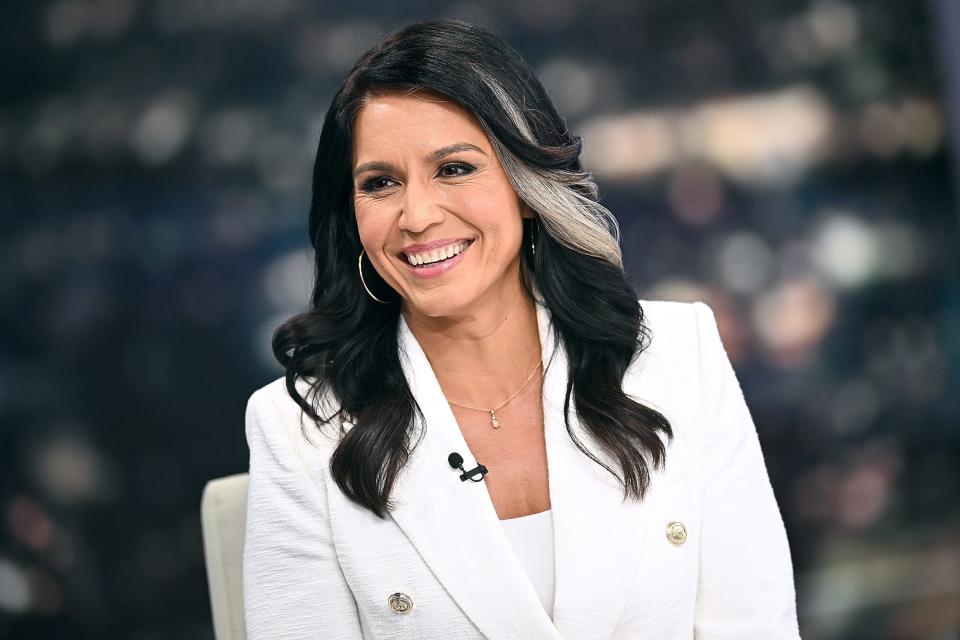

Former Rep. Tulsi Gabbard was once the most surprising name under Trump’s consideration. The former 2020 Democratic presidential candidate may now have her eyes set on a different Cabinet post.
In early June, Gabbard said during an interview that serving as either Secretary of State or Secretary of Defense would be one of the ways she could best serve the country under a possible second Trump administration.
Her politics have changed drastically since then. In 2022, she announced that she was formerly leaving the Democratic Party. Over time, the four-term former congresswoman became a fixture on Fox News and at political events. According to The Washington Post, Gabbard has also advised the former president and his team about defense policy.
She was also among the six names Ingraham asked Trump about in terms of potential running mates.
Rep. Marjorie Taylor Greene of Georgia
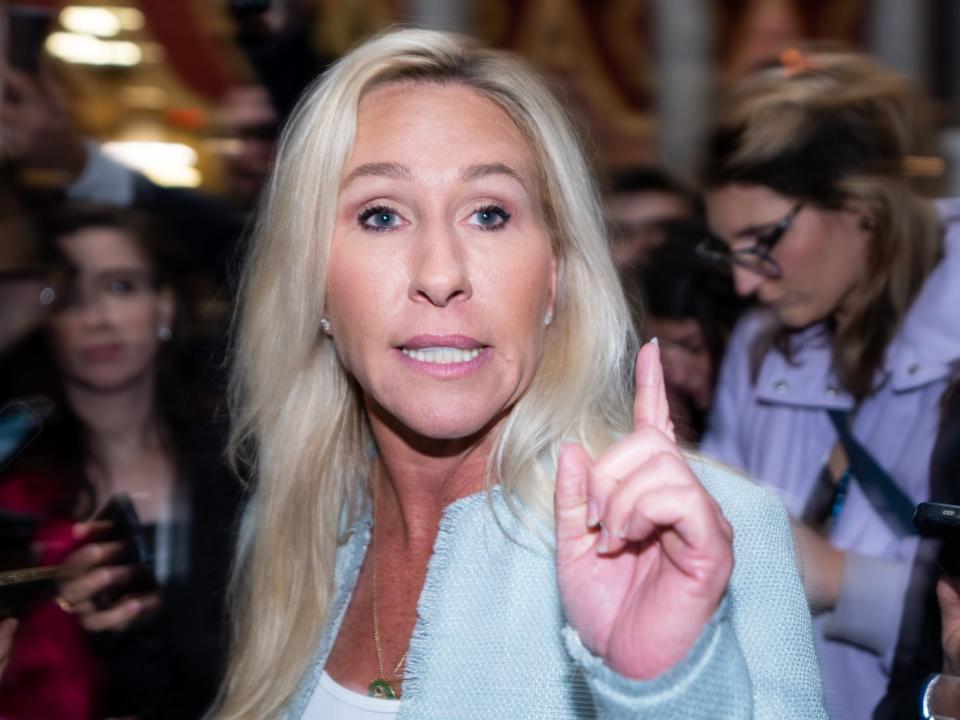

Greene, the fire-breathing conspiracy-minded congresswoman from Georgia, wouldn’t exactly be a tent-expanding choice for the former president.
But that hasn’t stopped her from talking up her own prospects.
“It’s talked about frequently and I know my name is on a list,” Greene told The Guardian in August. “But really my biggest focus right now is serving the district that elected me.”
A second-term legislator with no major policy accomplishments, Greene wouldn’t bring much to the equation when it comes to policy chops or broadening Trump’s appeal. In fact, it could damage the ticket, given her extremely poor polling.
Greene has also alienated top party leaders over her push to oust Speaker Mike Johnson. Trump has repeatedly praised Johnson as he tried to navigate Greene’s challenge.
Sen. Katie Britt of Alabama
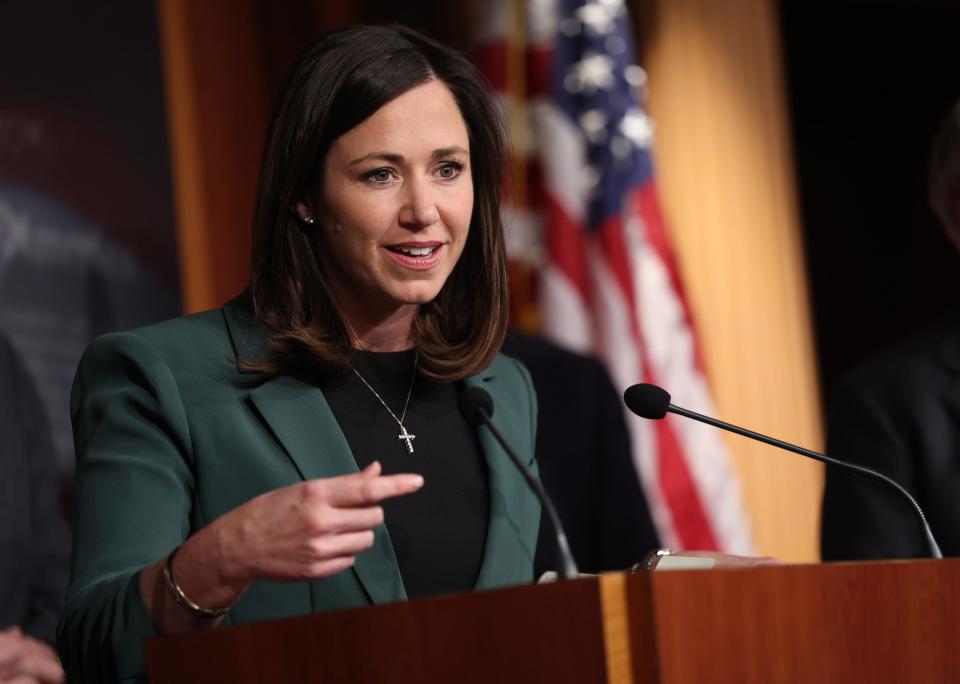

Britt quickly built her profile before delivering the Republican Party’s official response to Biden’s State of the Union address.
Britt’s response was widely panned, including by some Republicans. NBC’s “Saturday Night Live” enlisted Scarlett Johansson to impersonate the freshman senator.
At just 42, Britt could become one of the youngest vice presidents in recent memory. Only Dan Quayle, then a US senator from Indiana, would have been slightly younger. Quayle was 41 when he began his vice presidency under President George H.W. Bush.
Britt has made her age and the fact she is a mother of school-age children a key selling point in her political career.
Gov. Sarah Huckabee Sanders of Arkansas
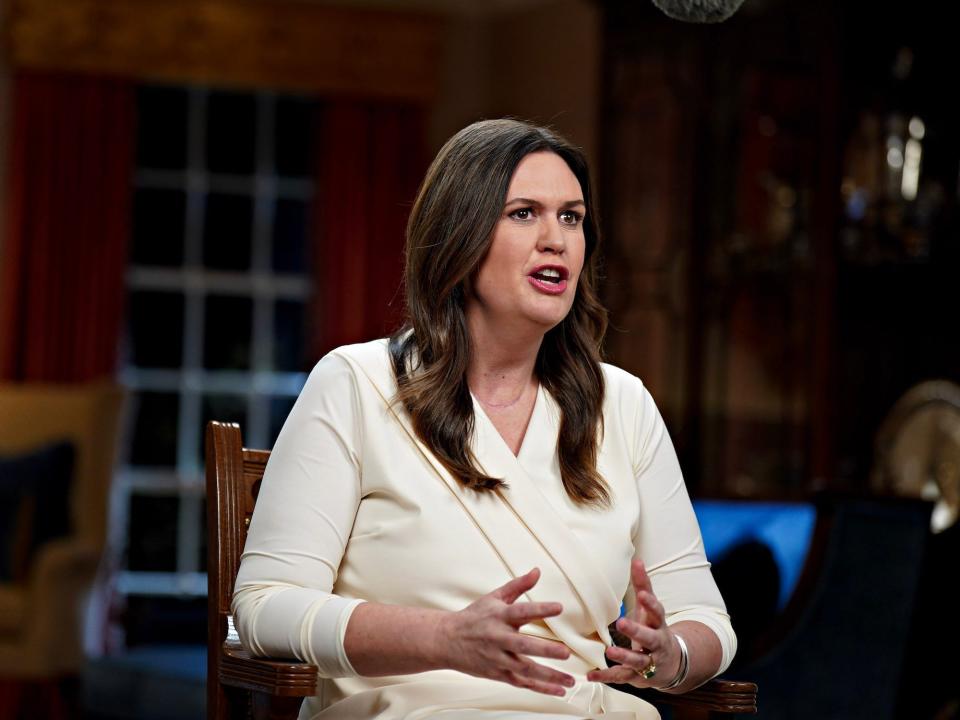

No one on this list knows Trump like Sanders. As his second White House press secretary, Sanders turned her turn at the podium into a governorship. As Arkansas governor, she’s pursued an array of conservative policies.
She has endorsed Trump’s campaign, but she has hinted that she wouldn’t be interested in returning to the White House as vice president.
“Look, I absolutely love the job I have. I think it’s one of the best jobs I could ever ask for, and I am honored to serve as governor, and I hope I get to do it for the next seven years,” Sanders previously told CBS News.
Gov. Kristi Noem of South Dakota
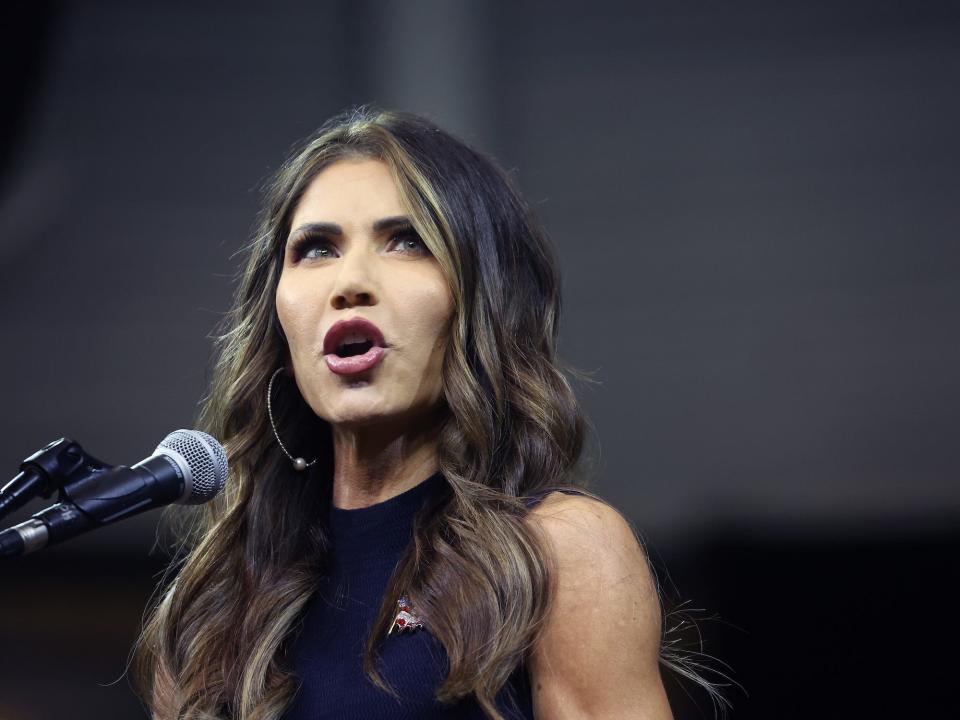

The second-term South Dakota governor was once, perhaps best known nationally for flouting COVID restrictions during the pandemic. That was until Noem decided to include a story in a forthcoming book about her decision to kill the family’s 14-month-old dog after she claimed it proved to be untrainable and overly aggressive.
Since then, the consensus is that Noem has greatly damaged her prospects of becoming Trump’s running mate.
Before the dog episode, Noem faced concerns after she posted a bizarre infomercial-esque video touting a dental procedure she received in Texas.
Gov. Ron DeSantis of Florida
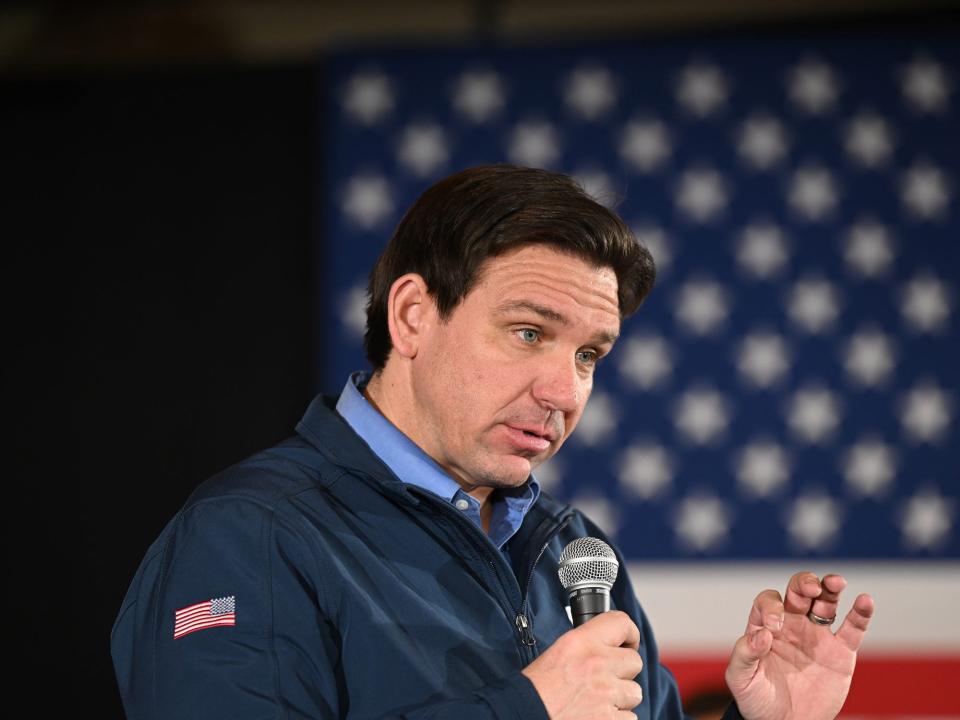

Trump and his allies spent over a year ruthlessly attacking DeSantis. It was only toward the end of his disappointing primary that the 45-year-old began to return fire.
DeSantis did endorse Trump immediately after dropping out before New Hampshire, but the question remains if either side would want to repair their political alliance.
There appeared to be a brief peace, but that was thrown into after a top Trump campaign official tore into DeSantis. The public attack was in response to a report that DeSantis privately expressed concern that Trump might resort to “identity politics” when selecting his vice president.
Former UN Ambassador Nikki Haley
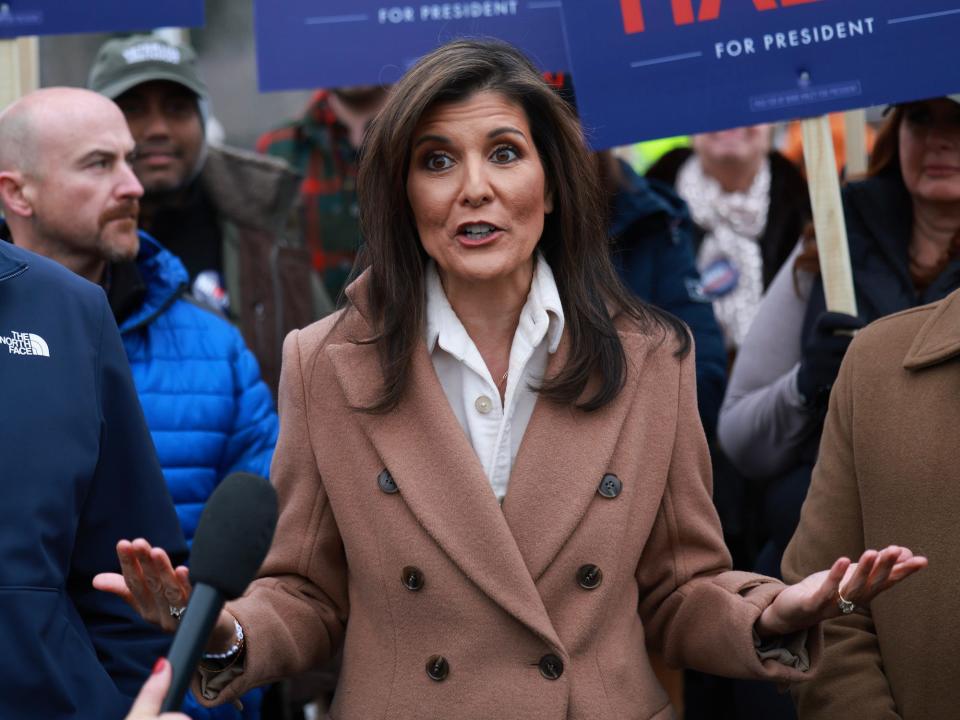

Haley offered a limited endorsement of Trump in late May, ending speculation about who she would vote for in November.
“I will be voting for Trump,” Haley said at an event after listing off her disagreements with Biden. She added, “Trump would be smart to reach out to the millions of people who voted for me and continue to support me and not assume that they’re just going to be with him. And I genuinely hope he does that.”
Trump, who previously shot down an earlier report that he was considering Haley to be vice president, said Haley is “going to be on our team in some form.”
Toward the end of her primary challenge, Haley repeatedly said she’s not interested in being anyone’s vice president. She praised Trump when she served as his UN ambassador, but was highly critical of him during the GOP primary.
Biden has also shown greater interest in bringing Haley’s voters than Trump.
Read the original article on Business Insider


